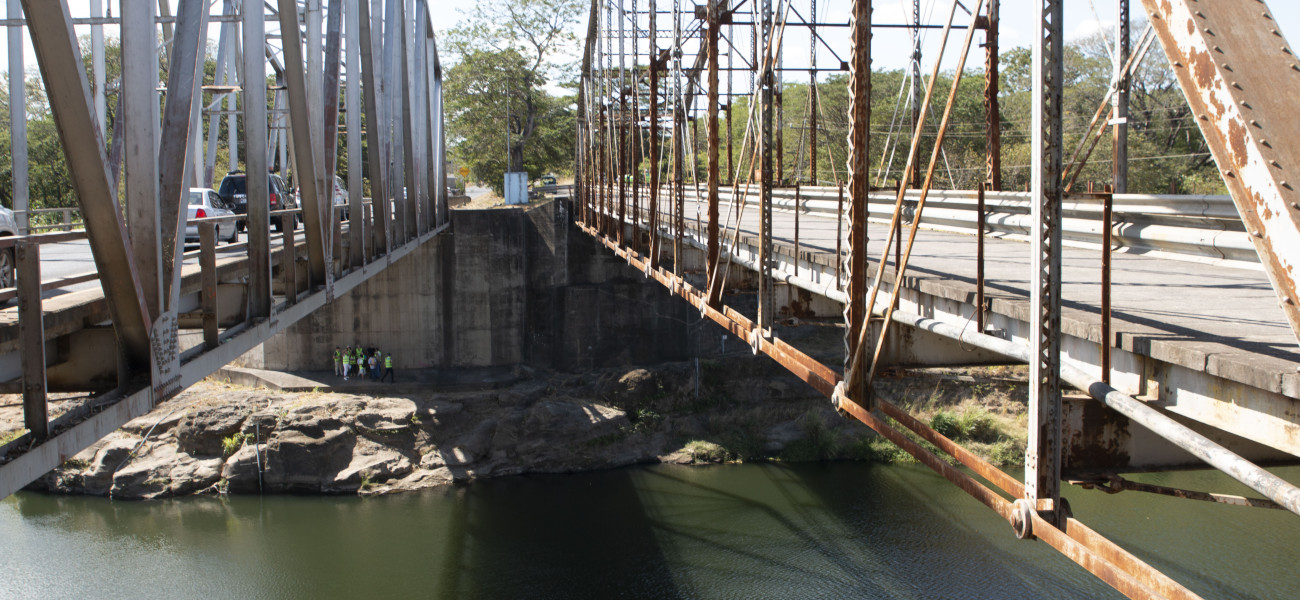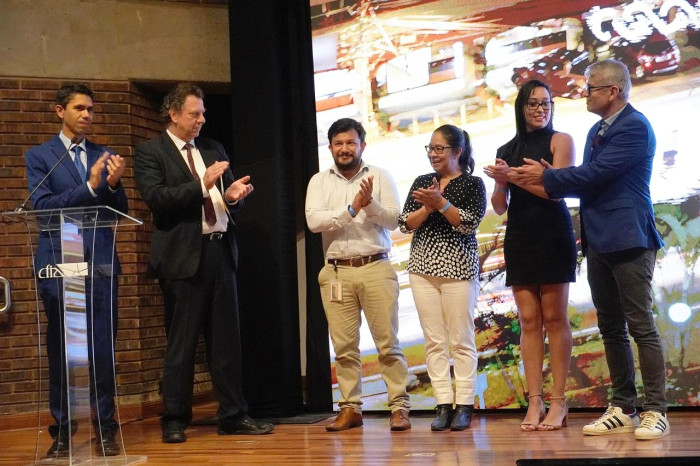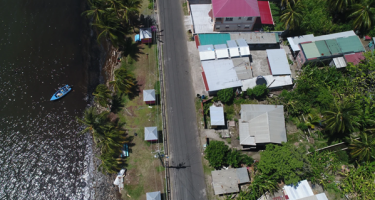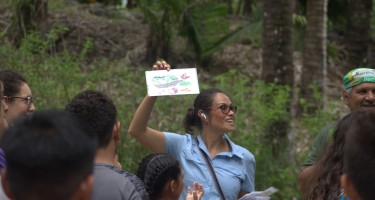MERCI-CR: Authorities formalize methodology as an instrument for assessing climate risk of infrastructure
Costa Rica’s government officially adopts the infrastructure climate change risk assessment methodology MERCI-CR developed among several institutions within the CSI project.

© GIZ Costa Rica
On the occasion of the inauguration of the Road Infrastructure and Transportation Congress on February 22, 2023 in San José, the Costa Rican Infrastructure Climate Risk Assessment Methodology (MERCI-CR, according to its initials in Spanish) was officially launched by the Costa Rican Ministers of Public Works and Transportation, Luis Amador, and of Environment and Energy, Franz Tattenbach.
MERCI-CR is a methodology based on similar international protocols which were adapted to national conditions, which makes it possible to analyze the interaction between local current and future climate variables and the various construction components of infrastructure. It was developed by an inter-institutional group formed by the Climate Change Directorate (DCC) and the National Meteorological Institute (IMN) of the Ministry of Environment and Energy (MINAE), the Ministry of Public Works and Transport (MOPT), the Federated College of Engineers and Architects (CFIA), with the facilitation of the German Development Cooperation, GIZ, through its Climate Services for Infrastructure Investments (CSI) project.
The methodology is already being applied in various types of infrastructure in different parts of the country.

Ministers of Public Works and Environment (left) congratulate the working group of the CSI Project during the officialization of MERCI-CR. © Federated College of Engineers and Architects of Costa Rica
Official launch of the Climate Risk Assessment Methodology of the Road and Transportation Infrastructure of Costa Rica (MERCI CR) by MINAE and MOPT during the opening of the Congress on Road and Transportation Infrastructure on February 22, 2023 in San José.
- Country: Costa Rica
- Project:
- Contact:
Federico Corrales Poveda


